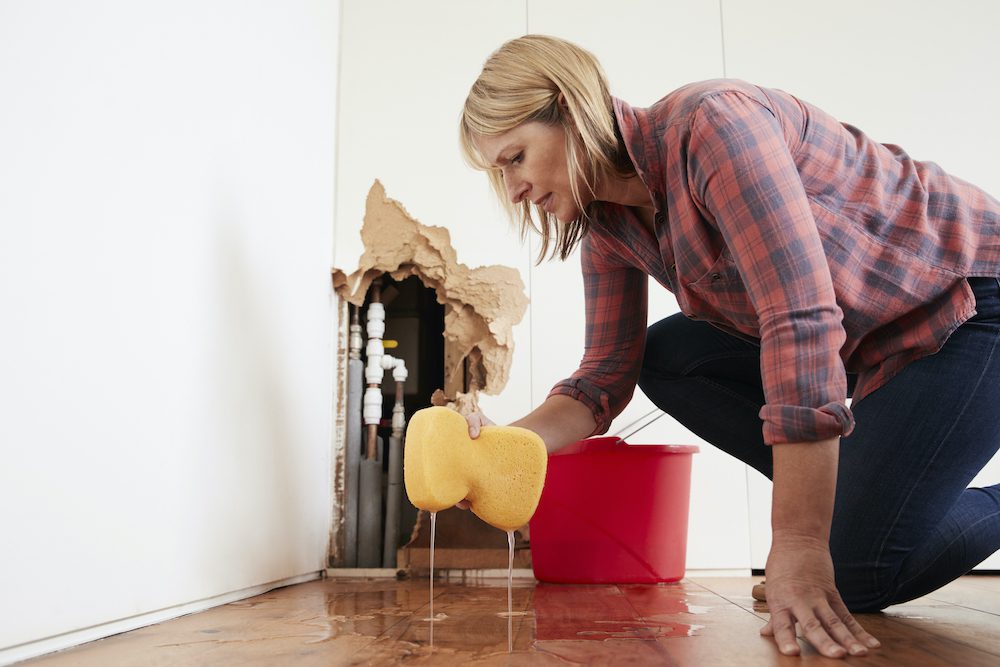6 Ways to Find Surprise Water Leakages in Your Home
6 Ways to Find Surprise Water Leakages in Your Home
Blog Article
What are your beliefs on Locating water leaks?

Early detection of dripping water lines can alleviate a possible calamity. Some small water leaks may not be visible.
1. Check Out the Water Meter
Every residence has a water meter. Examining it is a surefire way that assists you uncover leaks. For beginners, shut off all the water resources. Make sure no person will flush, utilize the faucet, shower, run the cleaning maker or dishwashing machine. From there, go to the meter and also watch if it will alter. Considering that no person is using it, there ought to be no movements. If it relocates, that suggests a fast-moving leak. If you identify no adjustments, wait an hour or 2 and also inspect back again. This means you might have a slow leakage that can also be underground.
2. Examine Water Intake
Assess your water bills and track your water usage. As the one paying it, you need to see if there are any kind of discrepancies. If you spot sudden changes, despite your intake coinciding, it implies that you have leakages in your plumbing system. Keep in mind, your water bill ought to fall under the same range monthly. An unexpected spike in your costs suggests a fast-moving leakage.
Meanwhile, a constant rise monthly, even with the exact same practices, shows you have a sluggish leakage that's likewise slowly intensifying. Call a plumber to thoroughly inspect your residential property, especially if you feel a cozy area on your flooring with piping below.
3. Do a Food Coloring Examination
When it comes to water consumption, 30% comes from commodes. If the shade somehow infiltrates your bowl throughout that time without flushing, there's a leak between the tank and dish.
4. Asses Exterior Lines
Do not forget to examine your outside water lines as well. Must water seep out of the connection, you have a loose rubber gasket. One small leak can waste bunches of water and surge your water costs.
5. Examine the scenario as well as inspect
Home owners need to make it a habit to inspect under the sink counters as well as also inside closets for any kind of bad odor or mold and mildew growth. These 2 warnings indicate a leak so punctual attention is needed. Doing routine examinations, even bi-annually, can conserve you from a major problem.
Check for stainings and damaging as most pipes and home appliances have a life span. If you presume dripping water lines in your plumbing system, don't wait for it to intensify.
Early detection of dripping water lines can minimize a possible disaster. Some little water leakages may not be noticeable. Examining it is a proven method that helps you uncover leaks. One little leakage can waste tons of water and surge your water bill.
If you suspect dripping water lines in your plumbing system, do not wait for it to rise.
WARNING SIGNS OF WATER LEAKAGE BEHIND THE WALL
PERSISTENT MUSTY ODORS
As water slowly drips from a leaky pipe inside the wall, flooring and sheetrock stay damp and develop an odor similar to wet cardboard. It generates a musty smell that can help you find hidden leaks.
MOLD IN UNUSUAL AREAS
Mold usually grows in wet areas like kitchens, baths and laundry rooms. If you spot the stuff on walls or baseboards in other rooms of the house, it’s a good indicator of undetected water leaks.
STAINS THAT GROW
When mold thrives around a leaky pipe, it sometimes takes hold on the inside surface of the affected wall. A growing stain on otherwise clean sheetrock is often your sign of a hidden plumbing problem.
PEELING OR BUBBLING WALLPAPER / PAINT
This clue is easy to miss in rooms that don’t get much use. When you see wallpaper separating along seams or paint bubbling or flaking off the wall, blame sheetrock that stays wet because of an undetected leak.
BUCKLED CEILINGS AND STAINED FLOORS
If ceilings or floors in bathrooms, kitchens or laundry areas develop structural problems, don’t rule out constant damp inside the walls. Wet sheetrock can affect adjacent framing, flooring and ceilings.
https://www.servicemasterbyzaba.com/blog/how-to-detect-water-leakage-in-walls/

As a person who reads on Locating water leaks, I was thinking sharing that segment was essential. Those who appreciated our post please be sure to share it. Kudos for your time. Visit again soon.
Report this page